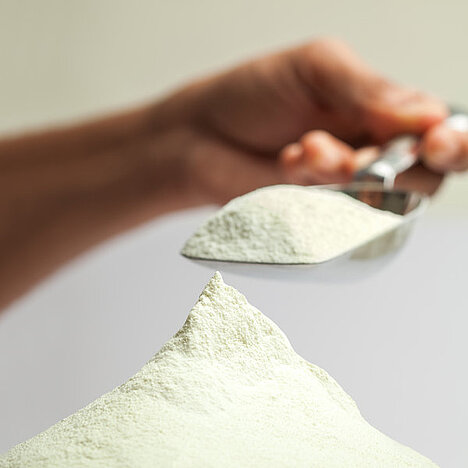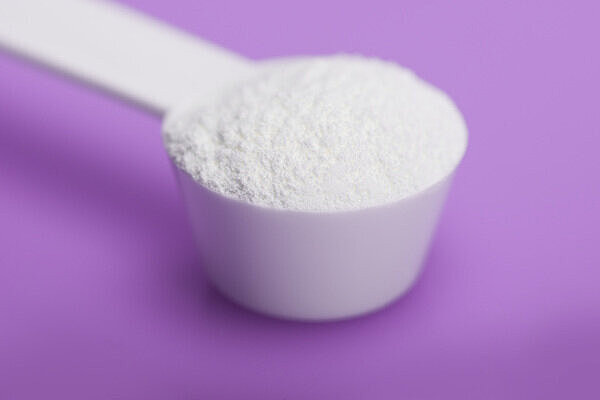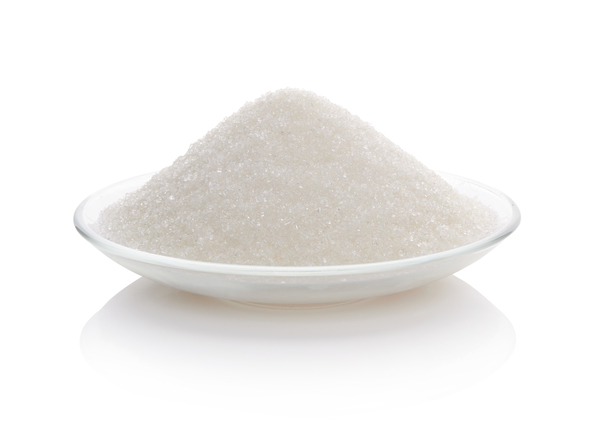Lactose

What is lactose?
Lactose is a so-called disaccharide, i.e. it consists of two simple sugars: glucose and galactose. In order to digest lactose, the body needs the enzyme lactase, which splits the lactose into its two components. These can then be absorbed and utilized by the small intestine.
How does lactose affect dogs?
Dogs naturally have little lactase in their intestines. This means that they have difficulty digesting lactose. If they ingest too much lactose, this can lead to digestive problems such as flatulence, diarrhea or vomiting. This is because the undigested lactose is broken down by bacteria in the large intestine, producing gases and acids.
However, the tolerance of lactose varies from dog to dog. Some dogs have no problems with lactose at all, while others react sensitively to even small amounts. This depends, among other things, on the breed, age and health of the dog.
What are the benefits of lactose for dogs?
Lactose is not fundamentally bad for dogs. It provides them with energy and can also have positive effects on the intestinal flora. In addition, dairy products such as cheese or yoghurt contain valuable nutrients such as calcium, protein and vitamins, which are important for a dog's health.
What are the disadvantages of lactose for dogs?
As already mentioned, lactose can cause digestive problems in some dogs. This can not only be unpleasant for the dog, but can also affect its quality of life. Dairy products can also contribute to obesity if they are fed in excessive quantities. This in turn can increase the risk of other diseases such as diabetes or joint problems.
How much lactose can a dog have?
There is no general rule as to how much lactose a dog can tolerate. It depends on the dog's individual sensitivity. It is best to slowly accustom the dog to lactose and observe his reaction. If he shows no symptoms, you can offer him a small amount from time to time. However, if he shows signs of intolerance, you should switch to lactose-free alternatives.
Lactose is a sugar found in milk and dairy products. It can lead to digestive problems in some dogs, but can also have positive effects in others. The tolerance of lactose varies from dog to dog and depends on various factors. To find out how much lactose a dog can tolerate, you should get him used to it slowly and observe his reaction.
If you notice any signs of hypersensitivity or poisoning in your dog, you should see your vet immediately. We are not a substitute for a vet, but we try to be as accurate as possible. Every dog reacts differently and we recommend you get a second opinion or consult your vet if in doubt.
Stay healthy and take good care of your four-legged friend!😊
Similar to Lactose
Maltose is a source of carbohydrates that dogs can use for energy. However, maltose should only be fed in moderation, as too much sugar can lead to obesity, diabetes or tooth decay. Maltose can also...
Fructose is a carbohydrate that is an important source of energy for the body. It is absorbed in the small intestine and enters the bloodstream. There it is either consumed directly or stored in the...
Glucose is a monosaccharide, i.e. a simple sugar. It consists of a ring of six carbon atoms to which hydrogen and oxygen atoms are attached. Glucose is the most common sugar in nature and is found...
Sucrose itself is not toxic to dogs, but it can lead to various health problems if fed in excessive quantities. These include: Tooth decay: sucrose encourages the growth of bacteria in the mouth,...



